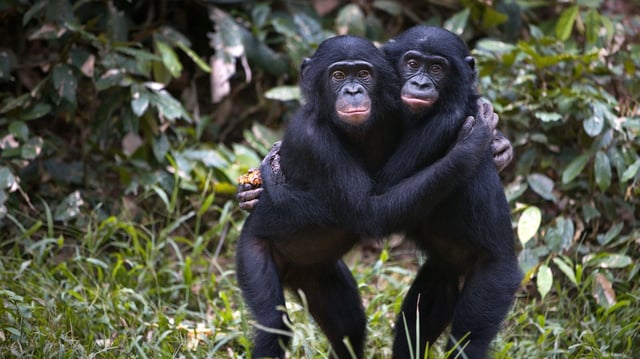Overview
- A study published in *Communications Biology* analyzed 30 years of data from six wild bonobo communities in the Democratic Republic of the Congo.
- Researchers observed 1,786 conflicts between males and females, with females winning 1,099 of them through coalition-building.
- In 85% of observed coalitions, female bonobos collectively targeted males, forcing them into submission and altering dominance hierarchies.
- Female alliances, often formed among unrelated individuals, enabled them to control resources like food and elevate their social standing.
- Future research will explore how reproductive autonomy, such as hidden ovulation, contributes to female empowerment in bonobo societies.

